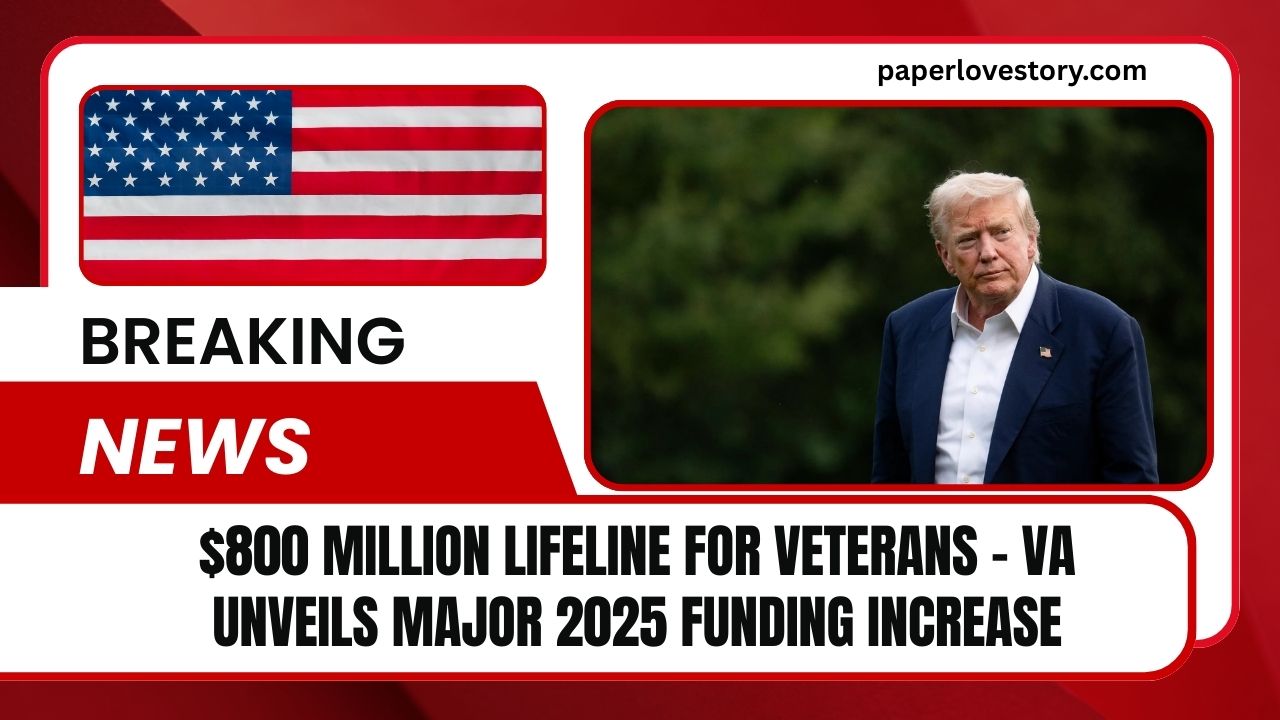The Department of Veterans Affairs (VA) has delivered a powerful message in 2025: America’s veterans deserve safer, stronger, and more modern healthcare. To achieve this, the VA has announced an $800 million lifeline aimed at transforming its facilities.
This funding is part of a record $2.8 billion Non-Recurring Maintenance (NRM) budget, ensuring veterans receive care in spaces that are both modern and secure.
Why the $800 Million Matters
This historic investment is more than just a number—it is a lifeline for millions of veterans who rely on VA hospitals and clinics every day.
The funding ensures that facilities across the nation will see critical infrastructure upgrades such as heating and cooling systems, elevators, fire alarms, and digital medical records support.
The aim is simple: give veterans the safe and efficient healthcare environments they deserve.
Where the Money Will Be Spent
The VA has outlined exactly how this funding will be used. It targets core infrastructure to improve both patient and staff experience:
- Boilers and Chillers: Replacing outdated heating and cooling systems.
- Electrical Networks: Modernizing old wiring and power systems.
- Elevator Systems: Enhancing accessibility for veterans with mobility challenges.
- HVAC Units: Ensuring clean air and temperature control in wards and clinics.
- Fire Alarms & Sprinklers: Upgrading life-safety equipment.
- Clinical Spaces: Renovating treatment rooms and labs.
- Utility Systems: Preparing facilities for advanced medical technology.
- EHR Support: Building digital-ready spaces for the Electronic Health Record Modernization (EHRM) program.
Numbers That Speak Volumes
Here’s a quick look at the financial shift:
| Funding Category | Amount in 2025 |
|---|---|
| New Funding Boost | $800 million |
| Total NRM Budget | $2.8 billion |
| Increase from 2024 | $500 million more |
This makes 2025 one of the strongest years on record for VA infrastructure investment.
Adding Extra Support for Veterans in 2026
Alongside the infrastructure boost, the VA announced that Supportive Services for Veteran Families (SSVF) grants will continue into fiscal year 2026. These grants help fund programs and services to prevent and end veteran homelessness.
Any veteran experiencing homelessness—or at risk of it—can reach out for help by calling the National Call Center for Homeless Veterans at 877-424-3838.
This extension of support underlines the VA’s long-term strategy: improving not only healthcare facilities but also ensuring that no veteran is left without shelter or basic security.
The Bigger Impact
The VA’s total 2025 budget exceeds $400 billion, reflecting a broad push to improve benefits, disability payments, and healthcare access. Within this, the $800 million NRM lifeline plays a vital role in ensuring facilities are not only functional but future-ready.
Veterans will see direct benefits in:
- Safer clinics and hospitals
- Faster, more reliable access to healthcare services
- Stronger support for digital records, making care more seamless
This is not just about maintaining buildings—it’s about building trust and dignity into the care veterans receive.
The $800 million lifeline for veterans is a clear statement: the nation is serious about its duty to those who served. By investing in safe, modern, and digitally capable facilities, the VA is ensuring that veterans are treated with the dignity and respect they earned.
And with continued SSVF grant support in 2026, veterans at risk of homelessness will also receive a safety net.
This major funding boost is not just maintenance—it is a promise kept. Veterans can now look forward to care delivered in spaces that are stronger, safer, and better prepared for the future.
FAQs
Who benefits from the $800 million VA lifeline?
All veterans using VA healthcare benefit, as the funding upgrades facilities nationwide with safer and more efficient systems.
How is 2025 different from 2024 in funding terms?
The NRM budget jumped from $2.3 billion in 2024 to $2.8 billion in 2025, thanks to this new $800 million allocation.
Will this funding create new programs for veterans?
No. This funding specifically supports infrastructure upgrades—from heating systems to digital record readiness—so care can be delivered in modern environments.
